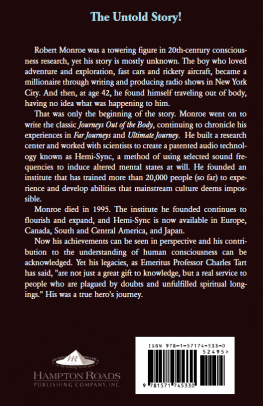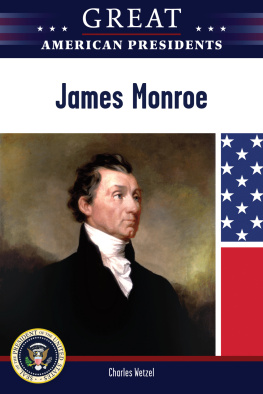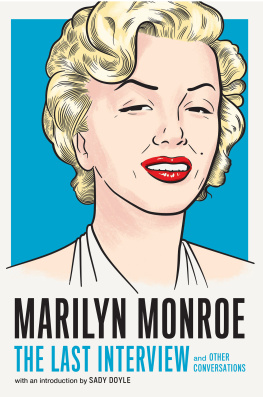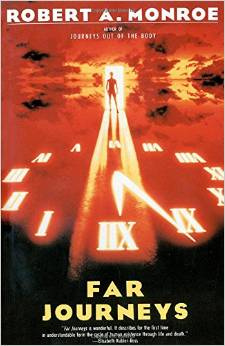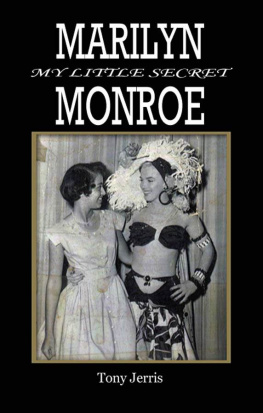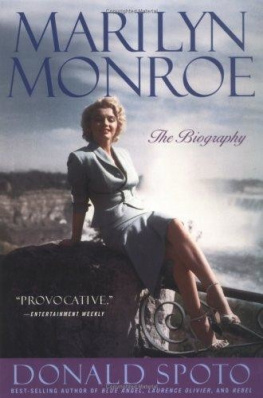Hampton Roads Publishing Company, Inc.
1125 Stoney Ridge Road Charlottesville, VA 22902
434-296-2772 fax: 434-296-5096
e-mail:
Robert A. Monroe
October 30, 1915-March 17, 1995
Laurie A. Monroe
April 3, 1951-December 18, 2006
FOREWORD
Ron Russell has written the definitive biography of Robert A. Monroe.
But why would anyone want to read a book about Monroe? Who was he, anyway, and what did he do that we should care about?
For untold thousands of people, the answer is obvious: his work and writings have confirmed their sanity and opened their lives to some marvelous adventures and learnings. But if you're not among the readers of his books (you will be after you read this book) or a graduate of his training programs, why should you care about Monroe's life and work?
I will answer as a basic human being, someone who puzzles over life, wonders what its purpose is, tries to live in a sensible way, and faces my own and my loved ones inevitable death. This will bother almost all of my scientist colleagues, but it gets right down to essentials.
1. You have a soul.
2. The highest scientific authorities have repeatedly told you there is no such thing as a soul.
3. In fact, they think you are stupid or crazy to even think about such a nonsensical idea as a soul.
4. Most of us have suffered and continue to suffer from having our soul, our spiritual nature, denied.
5. Bob Monroe was a sane, down-to-earth, solid, and successful American who discovered his soul and found ways to work with it that benefit all of us wounded people. He was not some arcane, distant historical figure, but someone who speaks our language.
6. A better understanding of Monroe's life, both his talents and his shortcomings, can stimulate and inspire our own personal understandings of our souls and our goals.
At the end of this foreword I will say it again in more scientifically nuanced language, but that's the gist of why you would want to read a book about Monroe's life.
Robert A. Monroe. Those of us who knew him as a friendly and informal person called him Bob. You'll learn who he was in fascinating detail in this book, but basically Bob embodied a quintessential rags-to-riches American success story, going from young man bumming around as a hobo during the Depression, to successful New York producer of radio shows (remember The Shadow? That was one of Bob's productions!), to businessman. (He owned the cable TVbusiness for a moderate-size city, Charlottesville, Virginia, when I first met him.)
In spite of his no-nonsense, practical, indeed irreligious attitudes (he was repelled by the hypocrisy of so many religious people), Bob was drafted by what he realized, many years later, was a Higher Power. At the height of his successful career, he started having what we technically call out-of-body experiences (OBEs, an abbreviation I had the honor of coining). In ordinary language, he experienced leaving his physical body behind and traveling places as a disembodied mind or soul. He worried, as any normal American would do, that he was going crazy. When his doctor couldn't cure him, he gave in to reality and started exploring his OBEs rather than rejecting them.
Bob was obsessed for years with the question of whether his experiences were real, as you or I would be if OBEs happened to us. Was his mind really traveling away from his body, or was this just some vivid, crazy kind of imagination or dream? As his experiences accumulated, he found that real was a tricky idea. His OBEs were sometimes partly realin the sense of accurately giving him information about what was happening at a distance in the ordinary worldbut there were a lot more places he visited, often more interesting places, than the ordinary world. What kind of reality did they have? Why was it happening to him? What, if anything, was he supposed to do with OBEs and the knowledge he was gaining from them?
My wife, Judy, and I met Bob in the fall of 1965, shortly after we had moved to Charlottesville so that I could take up a research position at the University of Virginia. I had looked forward to this meeting for several years, having heard about Bob's OBEs through parapsychologist Andrija Puharich (who wrote about him while protecting his identity by calling him Bob Rame). As you'll learn in this book, Puharich's writing was actually rather inaccurate from Bob's perspective and angered him, as it took some isolated instances whereexposure to glue fumes preceded an OBE and made it sound like Bob was a habitual glue-sniffer. This was not a socially desirable role to be portrayed in, given the antidrug hysteria of the timesto put it mildly! Bob said nothing about this anger at the time I met him, though.
OBEs had long fascinated me and I had already done some research on them. I expected to meet an unusual person that I would be professionally interested in. Little did I know that this professional interest aspect would be a small part of a deep friendship that would span the next thirty years.
My interest in unusual areas like parapsychology, altered states of consciousness, and the nature of the mind was by choice, having been fascinated by them since I was a teenager. Bob's interest in these areas had been forced on him by his OBEs. Because our culture was ignorant, pig-headedly ignorant, prejudiced (they must be crazy!), and suppressive about these areas of life, Bob had been struggling to answer his questions pretty much in lonely isolation. But by 1965, cultural changes were occurring, the blossoming of what was later called New Age culture. Bob and I had many exciting conversations as we saw the world starting to open up to spiritual realities.
We discussed questions such as how we could learn more about OBEs, both scientifically and spiritually. What did they mean? Was there a soul? What did a word like soul mean? What parts of religion were about great truths, what parts were misleading? How could you teach other people to experience OBEs for themselves, and thus see for themselves what was real? How could the insights of spiritual experiences lead to a better world?

